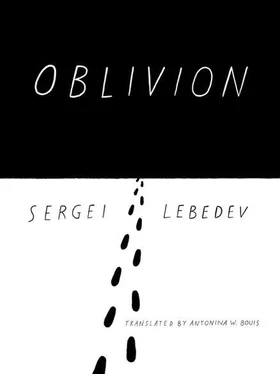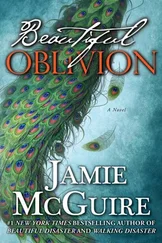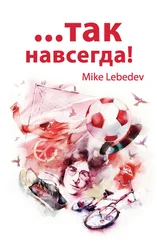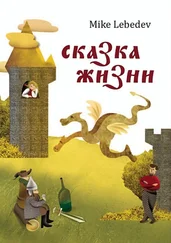But I didn’t have a rifle; I went down into the hole. The fugitive pushed the shiv aside; he was too weak to kill me with any benefit to him. I could simply go away, as if I hadn’t seen the canopy, and the fugitive would freeze to death; who knew why he was in prison, how he had escaped, if he had comrades and where they were; what he ate, mushrooms or human flesh; I went down, turned on my gas stove and started some bouillon cube broth. I realized that I was probably saving a murderer, maybe a rapist, robber, cannibal; he had been in the taiga too long to have had enough food in his pockets for that period, he was giving me too wild a look—as if he saw me gutted, freshly butchered. I should have left, gone back to our camp, radioed for a police helicopter, but I couldn’t do it; I tried to imagine his victims, whether they would have been prepared to kill him in revenge—but that had no direct bearing on the hole, the icy rain, the approaching snow front. It could be that the death awaiting the fugitive was just retribution, and that most likely he deserved it; but the idea of retribution was coming from my mind, wondering how to get out of this hole clean, without getting involved or taking anything on. “This is retribution, it is just, go away, and let it happen,” I told myself but kept cooking the broth. It turned out that there are situations from which you cannot make an exit without soiling your morality and the point was not in a choice of a number of evils but in the fact that once you’ve gone down into the hole, you can’t pretend you’re still standing atop it.
The fugitive drank the bouillon from the edge of the pot; the tin should have burned his fingers, but it didn’t: they had toughened, covered with layers of horny skin. We had nothing to say; he knew what I would ask, I knew how he would lie.
I left the fugitive my climbing boots, the pot, food, matches, two packs of cigarettes, my change of clothes, and my medicine chest. I knew that if he survived he would laugh over the idiot he had met and regret that he had not met me sooner when he was strong enough to rob and kill me, so that I would not turn him in. Calling for a police helicopter was my most frequent thought, and I sometimes imagined hearing the propeller blades through the rain, that it was passing by and would land, and that others would make the decision for me and drag him onboard. But for me to go through the pass and tell our radioman to call for a copter—here, near the former camp—it all took on another meaning; here the echo would have responded too readily to the barking of guard dogs and shots, if the fugitive tried to hide; here it was fundamentally wrong to appeal to the authorities, to the state, its court and justice; this place had its history, and it very strongly defined what was allowable here and what was not.
I climbed out of the hole to see how far the clouds were; behind me I heard metal—the fugitive was opening cans. I turned; the broth had given him a little strength, enough to use the shiv; I couldn’t jump into the hole, he would kill me, he thought I wanted to take away the food; all the same, I jumped in to get my backpack, and he threw a rock at me; I tried to pull him away from the cans, but he poked at me with the shiv, growled, kicked, grabbed me with his free hand and held me down with his knee; I hit him, I was stronger, but strength meant nothing here—he was frenzied, he was guarding the hole, guarding the food; I knocked him down, but he rose and threw himself at my feet, biting down on my trousers, and tore deep into my calf with the shiv; I got out of the hole, and he began tossing out the pot, clothing, shoes, bandages—everything but the food; he no longer knew what things meant, and his mind still only recognized food as food. I bandaged my leg while he growled and choked down tinned meat, drank evaporated milk from a perforated can, and gulped down crackers with the wrapping paper; he was killing himself, after a long fast he would get twisted bowels, but he couldn’t stop.
He died in an hour; even in convulsions he wouldn’t let me approach; even dying, when I tried to press down on his belly, stick my fingers in his mouth to make him vomit, he hit and bit me; in his jacket pocket I later found an empty matchbox and three fingers smoked over a campfire; the meat was preserved and did not rot.
My mind was so debilitated and my emotions so drained that I actually wondered whether the fingers should be buried separately or with him in one grave; then I realized that the second, eaten fugitive was already inseparable from the first; I piled stones over the dead man and added some soil with my sapper’s shovel; I did not try to remove the empty cans and wrappers—I couldn’t go down there again.
It was snowing; the low front had scattered the small foggy clouds and behind the blizzard, still quiet, transparent, I could see the ruins of the camp; a sunbeam broke through the clouds, illuminating the ruins, and it seemed that they were swallowing the cold glow of the snowy sun, the way light falls inside the rear of a sandstorm; in that space of distortion and loss, the human does not function, there can be no care, or gift, or compassion—the distortions pull them into their orbits and swirl them into unwilling collaboration with evil.
That is how I see that camp and lake in the valley; there I understood everything that subsequently served as a guiding light.
Back from the expedition, I learned that the housekeeper had died; the apartment passed to me by Grandfather II’s will. I delayed a long time before going there; I knew it wasn’t a question of the apartment itself; I could not accept those square meters, they did not belong to me, nor could they—life was returning me to what I had left: the personality of Grandfather II. I sensed that nothing good would come of it; the camp barracks, the fugitive who had lost all human semblance—sometimes you look back and see how life is bringing you toward understanding, how nothing is random but is interconnected, and if you live with an ear for that causality—not to mystical perceptions that are an imitation of direct conversation with life, but for perceiving what is given to you and how—you cannot select a path, a path and time select you; there is nothing messianic, or being chosen, or fatalistic about this; it is a very hidden, profoundly private sensation: your turn, your time, your deed.
I eventually did go to the old address; on one hand, I felt uncomfortable entering the empty apartment; there was a sense that it was a bit too easy, as if the apartment would have gotten used to the housekeeper’s departure, gotten over her death—and only then, carefully, without touching anything, could one go inside. But on the other hand, I was prompted by the feeling that at a moment when death is still nearby, when all the objects are exposed by the departure, you may be able to see and sense things that evaporate and settle down later; the objects will be objects once again, they will shut down, and you won’t hear anything, only the given state of mute objects.
As a child, I liked to eavesdrop on objects; I pretended to be leaving the house, fussing over my shoelaces in the entry, opening and shutting the door, so that the objects would think I had left—and then I would hide among the clothes and shoes. Never quite separate from the people who wore them, by virtue of their predestination they were forced to be double agents, my secret helpers; cut to fit the human body, they made me invisible to the vague vision of the object world, for which the main thing, I thought, was the silhouette, the contour.
I often imagined what went on in the apartment when no one was there, and I thought that after a certain time—in case one of the people returned for something—the objects, like crabs on the seafloor exposed by low tide, scurried from place to place, peeking up from below, planning, conspiring, hiding something under the shell of their usual ordinary appearance, and always ready to pretend to be the obedient, weak-willed things that my parents knew.
Читать дальше












